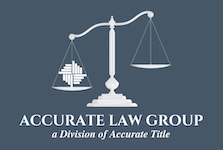Variable rate loans are attractive to many home buyers because of the lower monthly payments at the beginning. The interest rate can be much lower than the fixed rates available at that time, but this is not always true. Buyers must understand the terms of these mortgages and how they compare to fixed rate alternatives. This blog provides the pros and cons of variable rate loans in NH.
Details on Variable Rate Loans in NH
Rates and Time Periods
Variable rate loans have a lower interest rate for a set period of time and may change at specific times afterwards. For example, a 5-1 ARM may remain at the same rate for the beginning 5 years and fluctuate every year after. The number of years for which a rate is fixed and the periods at which it can fluctuate vary for every loan. It is also common that a short fixed period of time will offer a better starting rate than a longer one.
Indexes and Margins
Rates on variable rate loans are usually measured by a publicly published index and are detailed in the terms of the loan. Most rely on the national mortgage index, which reflects lending expenses throughout the country. The interest rate can either rise or fall based on that index and a particular margin above it (as set by the mortgage terms). Indexes continually fluctuate, so future interest rates will be a mystery until the actual adjustment date approaches.
Rate Increases
Most mortgages mention a rate cap. Rate caps limit how much the interest rate on a mortgage can rise at a given time. There may be a rate cap for each adjustment interval and for the duration of the loan. For example, a 5-1 ARM with a 2 percent cap will have a fixed rate for the first five years and may increase no more than 2 percent each year thereafter. If there were a 6 percent lifetime cap, then it may never increase any higher than six percent above the initial rate. Rate caps protect home owners from extreme changes in mortgage payments each year and are important to understand.
The Pros And Cons Of Variable Rate Loans In NH
Variable rate loans offer lower payments in the first few years and may make home buying affordable to more individuals (or enable them to purchase a higher-priced home). When rates are high, the gap between fixed and variable rate loans can be significant, making them even more desirable. However, there are also risks due to the potential increase over time. Buyers expecting to live in a home for many years may be better suited getting a fixed rate. The above included the pros and cons of variable rate loans in NH and is intended only as a reference. Consult a loan officer for details on particular mortgage options available to you and the differences between them.

